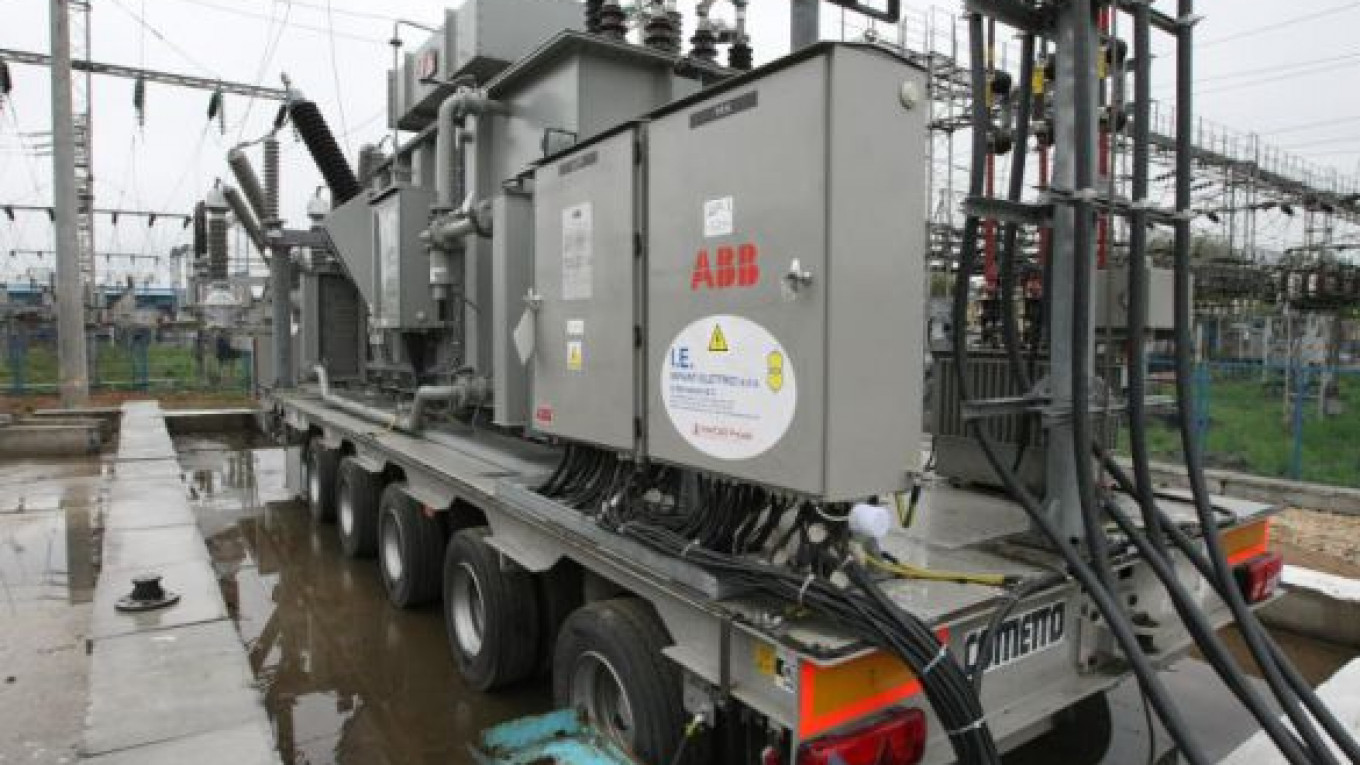Russia intends to ship nine mobile power stations from Sochi to Crimea in order to avoid power outages if Ukraine decides to shut off electricity to the turbulent region, a news report said Thursday.
The 150-ton power stations would be brought to Ukraine's southern peninsula either by sea or in heavy cargo planes from the aviation transport company Volga-Dnieper, Kommersant reported, citing four unidentified people in the energy and transport markets.
Crimea receives 1.2 gigawatts, the bulk of its electrical power, from Ukraine's electrical grid, though residents will vote on Sunday in a referendum to decide whether to become part of Russia after a pro-Western government took power in Kiev from ousted president Viktor Yanukovych.
The gas-powered stations that Russia intends to send, owned by the state electricity monopoly Russian Grid, have a total capacity of 202.5 megawatts and will add to 200 megawatts of capacity from regional solar power stations. An unidentified official familiar with the situation told Kommersant that the relocation may be more of a demonstration than a practical step in fulfilling the peninsula's power needs.
The stations were originally set up in Sochi as backup for possible grid overloads during the Olympic and ongoing Paralymic Games, though the power was reportedly not needed. Each station typically takes two to three months for delivery and installation, though they can be ready in 48 hours if the site is properly prepared.
A representative for Volga-Dnieper said that for now no official application had been made for moving the stations.
Russian Grids and and the Energy Ministry refused to comment, while Sochi authorities and Olympic construction company Olimpstroy said they did not know of the plans.
A Message from The Moscow Times:
Dear readers,
We are facing unprecedented challenges. Russia's Prosecutor General's Office has designated The Moscow Times as an "undesirable" organization, criminalizing our work and putting our staff at risk of prosecution. This follows our earlier unjust labeling as a "foreign agent."
These actions are direct attempts to silence independent journalism in Russia. The authorities claim our work "discredits the decisions of the Russian leadership." We see things differently: we strive to provide accurate, unbiased reporting on Russia.
We, the journalists of The Moscow Times, refuse to be silenced. But to continue our work, we need your help.
Your support, no matter how small, makes a world of difference. If you can, please support us monthly starting from just $2. It's quick to set up, and every contribution makes a significant impact.
By supporting The Moscow Times, you're defending open, independent journalism in the face of repression. Thank you for standing with us.
Remind me later.






